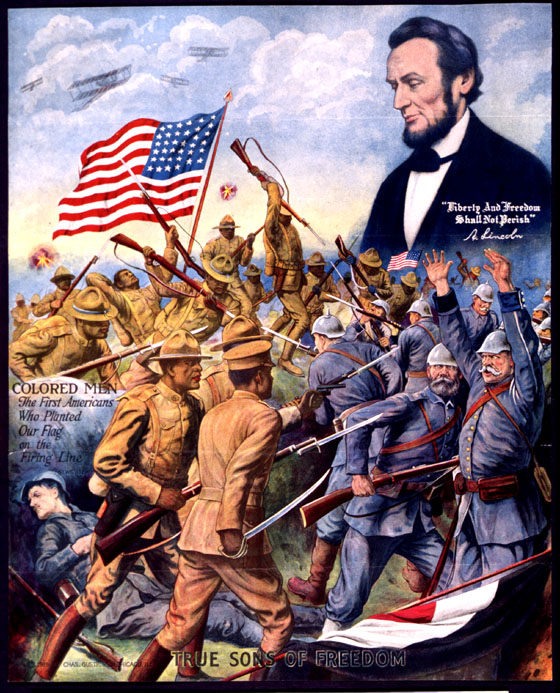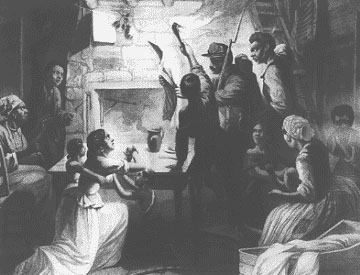

More progress was made on the other great issue of Reconstruction - helping African Americans freed from slavery. In March 1865, during the final weeks of the War, Congress and the President established a new government agency to help former enslaved persons, or freedmen. This agency was called the Freedmen's Bureau, and it was actually part of the army.
In the years following the war, the Freedmen's Bureau played an important role in helping African Americans make the transition to freedom. The agency distributed food and clothing and also provided medical services that lowered the death rate among freed men and women. The Freedmen's Bureau achieved one of its greatest successes in the area of education. The bureau established schools, staffed mostly by teachers from the North. It also gave aid to new institutions of higher learning, such as Atlanta University, Howard University, and Fisk University. It had been against the law to educate enslaved African Americans. As a result, most African Americans in the South could not read or write. Now they were happy to have a chance to make their lives better through education. One of the Freedmen's Bureau teachers said of her students, "I never saw children so eager to learn...It is wonderful how they have so great a desire for knowledge." By 1869, more than 300,000 African Americans attended Freedmen's Bureau schools. African Americans and poor whites voted and held public office.
The bureau helped
freed people acquire land that had been abandoned by owners or seized by
Union armies. It offered African Americans free transportation to
the countryside where laborers were needed, and it helped them obtain fair
wages. Although its main goal was to aid African Americans, the bureau
also helped Southerners who had supported the Union. Some freedmen
found jobs in cities. Often they had to take the hardest and most
dangerous work, such as digging wells, and laying sewers. Even though
everyday life for African Americans was still a battle, the Freedmen's
Bureau made the road to transition easier.

A Union soldier reads
the Emancipation Proclamation to newly freed slaves. After Lincoln signed
the Proclamation, celebrations took place throughout the country.
(79-CWC-3F8,
National Archives)
|
|
|
|
|
|
|
|
|
|
|
|
|
|
|
|